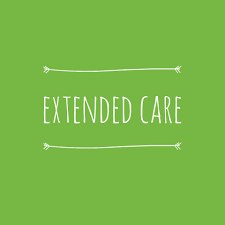Buying Supplemental Health Insurance: Medigap
May 3, 2024

Medicare won’t cover all of your health-care costs during retirement, so you may want to buy a supplemental medical insurance policy known as Medigap. Offered by private insurance companies, Medigap policies are designed to cover costs not paid by Original Medicare (Parts A and B), helping you fill the gaps in your Medicare coverage. You’ll pay the private insurance company a monthly premium in addition to the monthly Part B premium you pay to Medicare.
Tags: Estate Planning, Long-Term Care Planning, Medicare
An Introduction to Estate Planning
Apr 26, 2023

By definition, estate planning is a process designed to help you manage and preserve your assets while you are alive, and to conserve and control their distribution after your death according to your goals and objectives. But what estate planning means to you specifically depends on who you are.
Tags: Estate Planning, Family Wealth, financial advisor, financial advisor charlotte nc, Long-Term Care Planning, Personal Finance, retirement, Retirement Planning
What is Critical Illness Insurance
Sep 7, 2022

Ever hear of critical illness insurance? This isn’t standard-issue disability insurance, but a cousin of sorts. With people living longer, it is a risk management option entering more people’s lives. (more…)
Tags: Health Care Needs, Insurance, Long-Term Care Planning
Understanding Extended Care
Mar 23, 2022

Addressing the potential threat of extended care expenses may be one of the biggest financial challenges for individuals who are developing a retirement strategy.
The Administration for Community Living estimates that by 2060, 94.7 million Americans will be aged 65 and older. Of those, it’s estimated that someone who just turned 65 has an almost 70% chance of needing some type of extended care.1,2 (more…)
Tags: Health Care Needs, Health Care Savings, Long-Term Care Planning, Medicare
Market Outlook 2022: Passing the Baton
Dec 24, 2021

Our resurgent economy grew at over a 6% pace in the first half of 2021 and is on track for over 5% growth for the year by the time 2021 draws to a close. During the early recovery, we had a hand up from stimulus and policy that saw us through a period of unique challenges. In 2022, the economy may be ready for a handoff, back to a greater emphasis on the individual choices of households and businesses. How smoothly that handoff is executed may determine the course of the recovery. This is our market outlook for what’s to come in the new year. (more…)
Tags: Certified Financial Planner Charlotte NC, charlotte NC, financial advisor charlotte nc, Financial Planner Charlotte NC, Long-Term Care Planning, Personal Finance, Retirement Planning
Understanding Long-Term Care
Oct 22, 2021

Addressing the potential threat of long-term care expenses may be one of the biggest financial challenges for individuals who are developing a retirement strategy.
The U.S. Department of Health and Human Services estimates that 69% of people over age 65 can expect to need extended care services at some point in their lives. So, understanding the various types of long-term care services – and what those services may cost – is critical as you consider your retirement approach. (more…)
Tags: Financial Planning, Long-Term Care Planning
Eldercare Choices in the COVID-19 Era
Jul 26, 2021

Given the threat of COVID-19, seniors today may be considering their eldercare alternatives with extra caution.
In addition to health factors, the cost can be an issue. According to Genworth’s 2020 Cost of Care Survey, the median annual cost of a semi-private room in a nursing home is now $90,000. A single-occupancy room may cost over $100,000 a year.1 (more…)
Tags: Current Events, financial advisor charlotte nc, Long-Term Care Planning, Medicare, retirement, Risk Management
Ways to Fund A Special Needs Trust
Jul 7, 2021

If you have a child with special needs, a special needs trust may be a financial priority. There are many crucial goods and services that Medicaid and Supplemental Security Income might not pay for, and a special needs trust may be used to address those financial challenges. Most importantly, a special needs trust may help provide for your disabled child in case you’re no longer able to care for them. (more…)
Tags: financial advisor charlotte nc, Health Care Needs, Health Care Savings, Insurance, Investing, Investment Planning, Legacy, Long-Term Care Planning, Wealth Building
Life Insurance with Extended Care Riders
Apr 9, 2021
The COVID-19 pandemic has changed extended-care policies. While the specific policy information varies from company to company, in general, the pandemic has made it more difficult to qualify for extended-care insurance policies. This can be particularly challenging if you’re in a high-risk group.
Around 7 out of every 10 seniors are projected to need extended care during their lifetime, and many of these medical needs aren’t covered by Medicare, Medicaid, or standard health insurance. Unless you have made arrangements for extended care, you are choosing to self insure should you require this type of assistance.1 (more…)
Tags: Insurance, Long-Term Care Planning
Group Life for a Growing Business
Dec 14, 2020
As companies grow and add employees, they also add employee benefits. Retirement and medical plans can be provided, but what about group life insurance?
Group life on the menu? Owner-operators know that group life coverage can help attract excellent workers, but some are anxious about the cost and suspect they are just “small fish” to insurers. In reality, coverage may be very affordable and include a variety of policy choices. (more…)
Tags: Employee Benefit Planning, Health Care Savings, Insurance, Long-Term Care Planning, Medicare
More Insights
Key Takeaways Volatility came back with a vengeance this week as selling pressure in the mega cap space dragged down the broader market. Counterbalancing weakness in these heavyweight names poses a challenge for the rest of the market. Overbought conditions can also be blamed for the recent weakness. The S&P 500 reached a 14.9% premium … Continue reading “Market Update – Assessing the Technical Damange”
Life insurance can be an excellent tool for charitable giving. Not only does life insurance allow you to make a substantial gift to charity at relatively little cost to you, but you may also benefit from tax rules that apply to gifts of life insurance.
When you think of Social Security, you probably think of retirement. However, Social Security can also provide much-needed income to your family members when you die, making their financial lives easier. Your family members may be eligible to receive survivor benefits if you worked, paid Social Security taxes, and earned enough work credits. The number … Continue reading “Social Security Survivor Benefits”
Information vs. instinct. When it comes to investment choices, many people believe they have a “knack” for choosing good investments. But what exactly is that “knack” based on? The fact is, the choices we make with our assets can be strongly influenced by factors, many of them emotional, that we may not even be aware … Continue reading “Making Investment Choices”
As a business owner, you should carefully consider the advantages of establishing an employer-sponsored retirement plan. Generally, you’re allowed certain tax benefits for establishing an employer-sponsored retirement plan, including a tax credit for establishing the plan and a deduction for contributions you make. In return, however, you’re required to include certain employees in the plan, … Continue reading “Retirement Plans for Small Businesses”
Services
Epic Capital provides the following comprehensive financial planning and investment management services: Learn More >

 Top of Page
Top of Page











